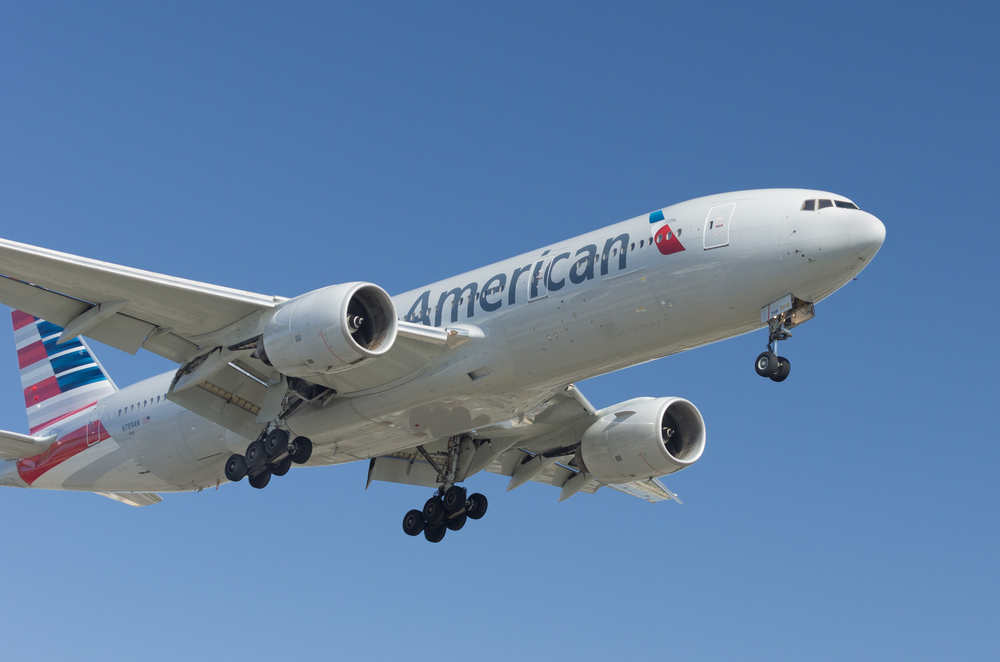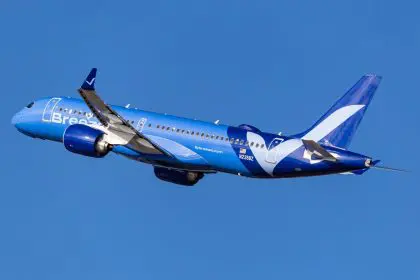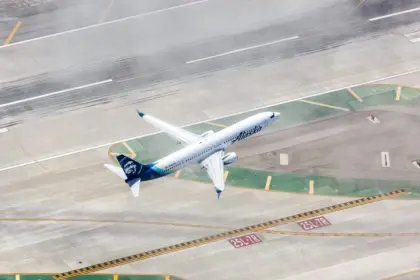In a lawsuit filed March 21, 2024, entrepreneur and CEO Neel Elsherif claims that American Airlines failed to properly address a disturbing incident that occurred during her May 2024 flight from New York City to Milan. According to court documents submitted to the Eastern District of New York, Elsherif was seated in premium economy when she observed the passenger next to her engaging in inappropriate self-touching behavior for approximately 60 minutes.
The legal filing states that as cabin lights dimmed during the flight, Elsherif noticed the male passenger, identified only as “John Doe” in court papers, holding and rubbing his groin area over his clothing. The lawsuit describes how this behavior caused immediate distress to Elsherif, who reportedly paid over $3,000 for her premium economy seat. Court documents indicate she experienced panic and significant discomfort, with fears for her personal safety preventing her from sleeping during the flight.
Alleged response from flight staff
When Elsherif reported the situation to flight personnel, the response she received forms a central element of her legal complaint. According to the lawsuit, a female flight attendant dismissed her concerns with the comment that men just do stuff like that. This alleged dismissal represents a key point of contention in the legal action.
The lawsuit further claims that instead of addressing the behavior of the male passenger, the flight attendant offered Elsherif the option to relocate to a seat in a lower class cabin. Court documents state that despite Elsherif eventually changing seats, the flight attendant continued serving alcoholic beverages to the male passenger who had allegedly been visibly intoxicated.
This response has prompted Elsherif to pursue damages for emotional distress, with her legal team citing ongoing anxiety, newly developed fear of flying, and psychological trauma resulting from both the incident itself and the way it was handled by airline staff.
Discrimination concerns
The lawsuit raises additional issues beyond the incident itself, with Elsherif claiming that her ethnic background influenced how her complaint was handled. As a woman of Arab descent, she alleges discriminatory treatment compared to the white male passenger involved.
Court documents suggest the flight attendant provided preferential treatment based on race and gender factors, with the lawsuit specifically noting that staff failed to categorize or respond to the reported behavior as a form of sexual misconduct requiring intervention.
This aspect of the case touches on broader societal concerns regarding how reports from women, particularly those from minority backgrounds, may be discounted or minimized when reporting uncomfortable or threatening situations. The legal filing argues that the response effectively normalized inappropriate behavior and placed the burden of accommodation on the person reporting the problem rather than addressing the source of the disturbance.
Post-incident handling
Following the flight, Elsherif reportedly attempted to pursue the matter through proper channels with American Airlines. Her lawsuit states that the company declined to provide identifying information about the male passenger, effectively preventing her from pursuing additional legal action directly against the individual involved.
This alleged lack of cooperation from the airline after the fact forms another component of Elsherif’s complaint, with her legal team arguing it demonstrates a pattern of inadequate response to serious passenger concerns. The lawsuit characterizes these actions as contributing to Elsherif’s ongoing emotional distress and sense of powerlessness in the aftermath of the incident.
American Airlines has acknowledged awareness of the lawsuit. In a public statement, the company indicated they are examining the allegations while emphasizing their general commitment to providing positive travel experiences for their customers.
Industry implications
This case potentially impacts how airlines might handle similar situations in the future. Aviation industry observers note that flight crews face complex challenges when managing passenger conflicts, particularly in the confined space of an aircraft cabin during international flights.
Airlines maintain extensive policies regarding passenger behavior and misconduct, with flight attendants receiving training on managing various situations that may arise during travel. However, this lawsuit raises questions about potential gaps between written policies and their practical implementation during real-world incidents.
The case also highlights the delicate balance airlines must maintain between addressing legitimate passenger concerns and avoiding unnecessary escalation that might disrupt flight operations.
Legal landscape for similar cases
Previous cases involving passenger misconduct during flights have established certain precedents regarding airline responsibility. Courts have generally recognized that airlines have a duty to maintain reasonable safety standards for all passengers and to respond appropriately to reports of disruptive or inappropriate behavior.
The legal threshold for airline liability typically focuses on whether staff followed established protocols and whether their response to reported incidents was reasonable under the circumstances. Discrimination claims add another layer of complexity, requiring examination of whether passengers of different backgrounds receive comparable treatment in similar situations.
Elsherif’s case will likely focus on whether American Airlines met these legal standards through their handling of both the initial incident and the subsequent complaint process.
Moving forward
As this case progresses through the legal system, it may prompt broader discussions about passenger rights and airline responsibilities regarding in-flight misconduct. Aviation industry analysts suggest that regardless of the ultimate legal outcome, the publicity surrounding such cases often leads companies to review and potentially strengthen their internal policies.
For passengers, this case underscores the importance of understanding reporting options during flights and documenting incidents thoroughly when pursuing complaints. For airlines, it highlights the critical importance of ensuring front-line staff receive comprehensive training on handling sensitive situations in ways that prioritize passenger safety and dignity regardless of background.
The resolution of this case may influence how airlines approach similar situations in the future, potentially leading to industry-wide reconsideration of best practices for responding to passenger misconduct complaints.














